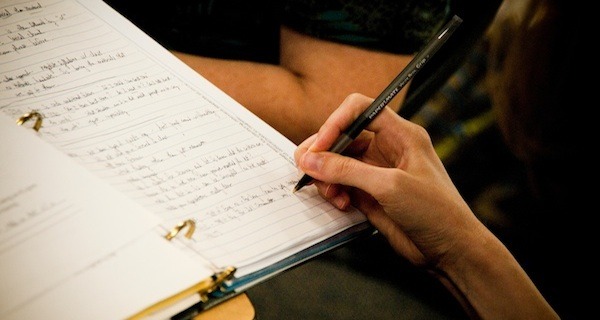Journaling is not just for backpackers and sweet sixteens! In fact, the humble journal can be your best teaching tool in the TEFL classroom. Here at Bridge, we recommend taking the time to jot a few notes at the end of each class in your own TEFL journal, and here’s why:
1. You’ll get ideas for future lesson plans
When you have no idea what to teach next week, a quick scan through your journal pages should provide plenty of ideas. Maybe your students struggled with count and non-count nouns during a conversation activity last week, or perhaps you noticed that they need to brush up on the perfect tenses. These clues will help you tailor your next class activities to your students’ specific needs, and save you from ever uttering those words: “I have no idea what to teach.”
2. You’ll notice patterns and common errors
Your journal will help you see where your students frequently slip up. Again, this will help you to tailor future lesson plans, as well as to know what errors you should focus on correcting. Tracking errors can also serve as an informal progress assessment; you’ll know when you’ve made progress because you’ll see specific errors disappear from your journal pages.
3. You’ll improve your teaching technique
A journal will help you track your own errors, alongside those of your students. Take a few notes after every class on what worked and what didn’t in your teaching style. Did students get confused when you explained an activity? Was a certain activity not engaging enough? Do some games work better than others with certain groups or classes? Over time, your journal notes will help you to self-correct and improve your game as a teacher.
4. You get the satisfaction of tracking your students’ progress
When you have a lot of students, it can be difficult to track the progress of individuals in terms of their class participation. Take the time to make notes about key behaviors and accomplishments after each class. For example, you may notice that one student who was particularly shy a few weeks ago is now taking a leadership role in group work. This is great information for your progress reports and evaluations, and it also doesn’t hurt to pay a compliment to a particular student about his or her progress from time to time. Your attention will motivate them to work harder and will help you to build trust and rapport.
5. You will always remember where you left off
When you are teaching the same activity to several different groups, it doesn’t hurt to make a note of where you left off. In my high school history class, we convinced our teacher that we hadn’t finished watching “Bill and Ted’s Excellent Adventure” so many times that we watched that movie over and over for several weeks! If only he had taken notes in his journal about where we left off…
Ready to get started? For your basic TEFL journal, you’ll want to track the following after each class:
- Date and class group/name
- What did you teach?
- Any common errors?
- How did the class go? Could you have improved anything?
- Any specific student behaviors or achievements to note?
- Where did you leave off for next class?
This is only a starting suggestion. Over time, you will develop your own list of questions and a journal system that works great for you.
To those of you readers who are experienced TEFL journalers, what do you take notes about?









